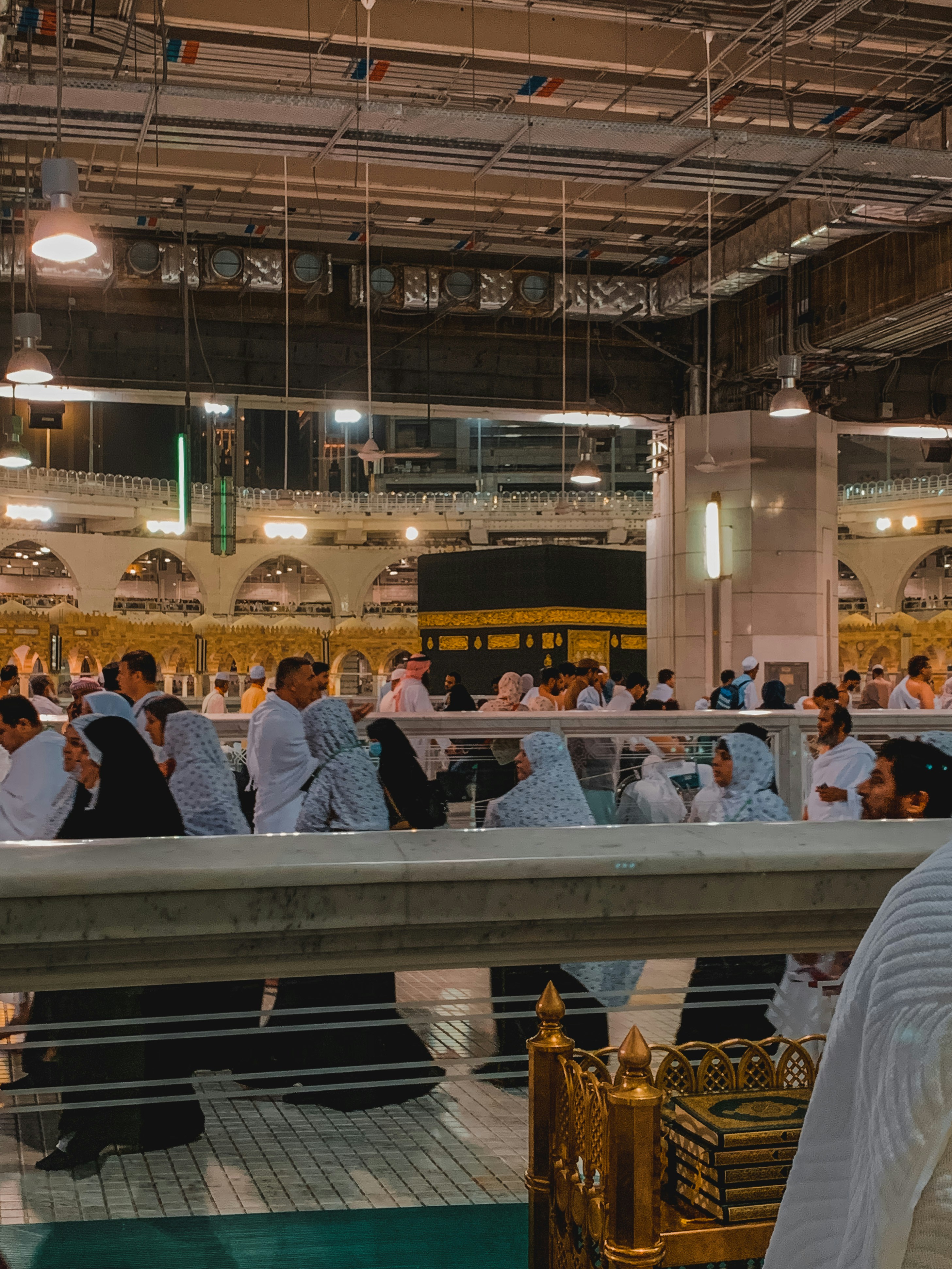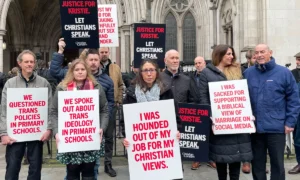Chance the Rapper: A Glimpse into His Faith and ‘Coloring Book’

Chance the Rapper: A Glimpse into His Faith and 'Coloring Book'
Introduction to Chance the Rapper
Chance the Rapper, born Chancelor Jonathan Bennett on April 16, 1993, in Chicago, Illinois, is a prominent figure in contemporary hip-hop, recognized not only for his innovative sound but also for his distinctive approach to music distribution and artistic expression. Rising to fame in the early 2010s, Chance gained widespread attention with the release of his mixtape, “Acid Rap,” in 2013, which showcased his eclectic style, blending elements of rap, gospel, and jazz. His unique ability to intertwine personal experiences with broader societal themes set him apart from other artists in the genre.
The emergence of “Coloring Book,” released in 2016, marked a significant milestone in Chance’s career. This mixtape was groundbreaking in its utilization of gospel influences, representing a departure from conventional hip-hop narratives. The project highlights Chance’s faith, incorporating themes of spirituality and gratitude, which resonate deeply with his audience. Notably, “Coloring Book” became the first streaming-only album to win a Grammy Award, underscoring not only its critical acclaim but also its influence within the music industry.
Chance the Rapper’s work extends beyond music; he has established himself as a cultural icon and activist, advocating for social change and education reform in Chicago. His grassroots approach and commitment to community service differentiate him from his peers, making him a role model for many young artists. Furthermore, his decision to release music for free sets a precedent in the industry, challenging conventional revenue models and emphasizing the importance of accessibility in art. Through his artistry and engagement with fans, Chance continues to redefine what it means to be a successful musician in the modern landscape, inspiring others to pursue a path that aligns passion with purpose.
The Concept of ‘Coloring Book’
Chance the Rapper’s ‘Coloring Book’ serves as a profound exploration of faith, personal growth, and the complexity of contemporary life experiences. Released in 2016, this mixtape stands out not just for its musical innovation but also for its lyrical depth. Chance utilizes his platform to weave together themes of spirituality and resilience, creating a rich tapestry that resonates with listeners from various backgrounds.
One significant aspect of ‘Coloring Book’ is its unabashed celebration of faith. Tracks such as “Blessings” exemplify this thematic dedication, where Chance articulates his gratitude towards God while highlighting the blessings received throughout his life. This sense of gratitude permeates the entire mixtape, embodying a joyous acknowledgment of divine providence. The incorporation of gospel elements further enhances the spiritual narrative, creating a captivating soundscape that reflects Chance’s belief that faith is intertwined with daily existence.
Moreover, Chance does not shy away from discussing personal struggles. In “Summer Friends,” he reflects on the transient nature of relationships and the inevitable reality of loss, juxtaposing joy with sorrow. This duality is a recurring motif throughout the mixtape, illustrating his authenticity and vulnerability. Such raw honesty invites listeners to connect with their own experiences, fostering a communal understanding grounded in shared human emotions.
Ultimately, ‘Coloring Book’ encapsulates Chance’s journey of self-discovery and devotion. Through intricate storytelling and vivid imagery, he artfully conveys how spiritual beliefs can serve as a source of solace and strength. The juxtaposition of personal narrative and broader societal themes renders this work both a personal testament and a universal message, encouraging listeners to embrace their own faith journeys amidst life’s complexities.
Christianity and Music: Chance’s Perspective
Chance the Rapper is a distinct voice in the music industry, often intersecting the realms of hip-hop and spirituality without shying away from discussing his Christian faith. Although he refrains from labeling himself as a “Christian rapper,” it is evident that his beliefs significantly permeate his music and artistic expression. This nuanced perspective allows Chance to create an authentic sound that resonates with listeners, regardless of their religious affiliations. His commitment to maintaining a broad appeal while incorporating elements of his faith exemplifies a complex dynamic for contemporary artists in the genre.
In many of his songs, Chance embraces themes of redemption, grace, and personal struggle, reflecting personal experiences shaped by his Christian beliefs. Tracks from his mixtape ‘Coloring Book’ notably feature gospel influences, showcasing a seamless blend of hip-hop and spiritual overtones. This choice not only enhances the musical quality but also deepens the emotional resonance for those who listen. He emphasizes that his artistry is a reflection of his life experiences, indicating that faith is a core aspect of his identity rather than a restrictive label that could limit his audience.
The distinction Chance makes between being a ‘Christian rapper’ and a rapper who is Christian highlights an evolving understanding of the intersection of faith and artistry. For many artists, the struggle to reconcile personal beliefs with public personas can create challenges; however, Chance manages to navigate this with relative ease. His approach encourages others to embrace their faith while exploring their artistic capabilities, ultimately suggesting that spirituality can coexist with diverse musical expressions. Through this lens, Chance the Rapper not only offers a unique perspective but also invites listeners to reflect on their interpretations of faith in relation to art.
References to Jesus in Chance’s Music
Chance the Rapper has consistently navigated themes of spirituality and faith throughout his musical repertoire, particularly evident in his 2016 mixtape ‘Coloring Book.’ Central to this work is an eloquent exploration of Jesus’ teachings, which serve as a guiding framework for Chance’s artistic expression. His dedication to faith is palpable in the lyrics, where references to Jesus seamlessly integrate with gripping narratives of personal struggle and community upliftment.
In the track “How Great,” for instance, Chance evokes a strong sense of worship, declaring the greatness of God and inviting listeners to share in a collective experience of faith. The chorus, characterized by joyful repetition of praise, not only reflects the profound influence of gospel music but also emphasizes the notion of community, echoing the teachings of Christ about love and togetherness. Furthermore, the seamless blend of hip-hop and spiritual themes in this track exemplifies how Chance honors the essence of truth in Jesus’ message.
Additionally, the song “Blessings” further illustrates Chance’s commitment to faith-driven principles. Throughout the lyrics, he acknowledges the divine influence in his life and expresses gratitude for the blessings he has received. Such sentiments resonate deeply with teachings found in Christian doctrine, where gratitude becomes a form of worship. The emphasis on serving others, notably articulated in lyrics that highlight community support and collective growth, embodies the spirit of Jesus’ call to love one’s neighbor.
Overall, Chance the Rapper’s ‘Coloring Book’ serves not only as an artistic expression but also as a heartfelt testament to the principles of love, service, and community inspired by Jesus. His music encourages listeners to reflect on their spiritual journeys while advocating for a life enriched by faith and compassion.
Giving Back to the Community
Chance the Rapper, known for his innovative approach to music, has also gained recognition for his unwavering commitment to philanthropy and community support. His initiatives reflect not only his personal values but also the themes woven throughout his music, particularly in his acclaimed project, ‘Coloring Book’. Through various charitable efforts, Chance highlights the importance of community and giving back, demonstrating how artists can serve as catalysts for positive change.
Centrally motivated by his Christian faith, Chance’s philanthropic endeavors often aim to address educational disparities and support marginalized communities in Chicago, his hometown. He has been instrumental in funding mental health services, educational programs, and arts initiatives for underprivileged youth. Notably, his contributions to public schools in Chicago, including significant donations that disrupted traditional funding models, exemplify his approach to community upliftment. This philanthropic spirit resonates deeply with the themes of hope and healing prevalent in ‘Coloring Book’, where he emphasizes the transformative power of faith and community.
In addition to direct financial contributions, Chance engages in hands-on activities, exemplifying his belief that personal involvement enhances the impact of charitable acts. His involvement in organizing events such as the “Social Works” initiative not only raises funds but also fosters community engagement and empowerment. By inviting local artists and influencers to participate, Chance creates a collective movement that strengthens community ties and amplifies the voices of those in need.
The alignment of Chance’s music with his philanthropic efforts serves as a powerful reminder of the role artists can play in advocating for social change. His unwavering dedication to supporting and uplifting his community highlights the significance of faith, love, and unity in addressing society’s challenges. Through these initiatives, Chance the Rapper continues to inspire others to contribute positively to their communities, leaving a lasting legacy rooted in both art and altruism.
Influence of Faith on Creative Process
Chance the Rapper is widely recognized not just for his music but also for the significant role his faith plays in his creative process. His artistry is deeply intertwined with his beliefs, which often serve as a source of inspiration and motivation. Chance’s commitment to his Christian faith is evident in many of his lyrics, where he frequently references spirituality and expresses gratitude for divine guidance. This spiritual foundation nurtures a unique approach to songwriting and artistic expression that sets him apart in the hip-hop landscape.
In interviews, Chance has openly discussed how his faith informs not only the themes of his music but also the very essence of his identity as an artist. He often considers his craft a form of worship, a way to communicate his personal relationship with God. For instance, in the song “How Great,” Chance employs gospel elements that celebrate his faith, blending traditional religious influences with contemporary sounds. Such creative choices showcase how his spiritual convictions directly impact the musical direction he takes.
Anecdotes from Chance’s life reinforce this connection. He has described moments of prayer and reflection that precede significant projects, allowing him to align his artistic goals with his spiritual purpose. Through his music, he shares messages of hope and positivity, aiming to uplift listeners and encourage them to reflect on their own spiritual journeys. Moreover, his willingness to discuss faith candidly, often accompanied by personal stories, further enhances the authenticity of his artistry.
Thus, it becomes clear that Chance the Rapper’s faith is not merely a background element; it is a pivotal force that shapes both his creative decisions and the resulting narratives within his work, making his contributions to music particularly resonant in today’s cultural landscape.
Reception of ‘Coloring Book’ and Its Impact
Released in May 2016, Chance the Rapper’s ‘Coloring Book’ garnered significant attention and praise from both critics and audiences alike. The mixtape, which explores themes of faith and spirituality, made an indelible mark in the world of hip-hop, and its reception further solidified Chance’s position as a leading voice in the genre. Critically, the mixtape received an overwhelmingly positive response, with many reviewers applauding its innovative approach, unique sound, and heartfelt lyrics. Notably, ‘Coloring Book’ became the first streaming-only project to receive a Grammy Award, taking home three prestigious trophies, including Best Rap Album. This monumental achievement further indicated a shift within the industry, emphasizing the importance of streaming platforms in the distribution and consumption of music.
Commercially, ‘Coloring Book’ also performed exceptionally well. It debuted at number eight on the Billboard 200 chart and quickly transitioned into a cultural phenomenon, transcending the traditional boundaries of hip-hop. The mixtape featured a star-studded lineup of collaboration, including renowned artists such as Kanye West, Lil Wayne, and Justin Bieber, which contributed to its widespread acclaim. Chance’s ability to blend gospel elements with contemporary hip-hop not only appealed to the conventional rap audience but also drew in listeners from diverse musical backgrounds, further broadening the mixtape’s impact.
The influence of ‘Coloring Book’ extends beyond its immediate commercial success. The project sparked meaningful conversations about faith and spirituality within the context of hip-hop. By openly discussing his relationship with God and incorporating gospel influences, Chance the Rapper has paved the way for other artists to express their beliefs without fear of alienation from the mainstream audience. This willingness to explore themes of faith in music represents a significant shift in hip-hop culture, suggesting that authenticity and vulnerability can resonate deeply with listeners. In summary, the reception of ‘Coloring Book’ has not only cemented Chance’s legacy but has also transformed the landscape of hip-hop, making faith an integral part of the dialogue.
Critiques and Misunderstandings
Chance the Rapper, known for his unique blend of gospel and hip-hop elements in his music, has faced various critiques centered around his faith and identity as a Christian artist. His acclaimed mixtape, ‘Coloring Book’, which intertwines spiritual themes with contemporary urban struggles, has been a focal point for both praise and skepticism. Critics often express concerns regarding the authenticity of his faith, questioning how a Christian artist navigates the secular music landscape, where themes of sin and indulgence prevail.
One of the notable critiques revolves around the juxtaposition of Chance’s lyrical content and his professed beliefs. Detractors argue that his songs, which may include explicit language or references to certain lifestyles, complicate his identity as a role model within the Christian faith. However, Chance himself has consistently addressed these misunderstandings by emphasizing that faith is inherently complex, and artistry may reflect the multifaceted nature of human experiences. He articulates that his faith informs his music, but it does not confine him to a singular narrative.
Moreover, Chance’s approach showcases the ongoing dialogue within the Christian community about what it means to be a believer in a diverse society. He argues that navigating different spaces allows for a richer expression of faith. This perspective fosters an understanding that one can be both an influential musician and a person of faith, contributing to the broader conversation about religion in popular culture. Despite the critiques, Chance the Rapper serves as a notable example of how spiritual beliefs can coexist with artistic freedom, broadening the definition of what it means to be a Christian artist in today’s music industry.
Conclusion: The Legacy of Chance the Rapper
Chance the Rapper has undoubtedly left an indelible mark on the music industry and cultural landscape. His unique blend of hip-hop and gospel influences has transformed the genre, offering a fresh perspective that resonates with many. By openly sharing his faith and experiences, Chance has created a compelling narrative that not only entertains but also inspires his audience. This approach has allowed him to bridge the traditionally perceived gap between secular music and spiritual expression, making it accessible and relatable to a diverse range of listeners.
The release of his critically acclaimed mixtape, ‘Coloring Book,’ serves as a pivotal moment in his career, marking a distinct departure from mainstream rap. His unapologetic incorporation of faith-inspired themes has sparked discussions within the hip-hop community about authenticity and the role of spirituality in art. Chance’s success without the conventional backing of a major record label has further solidified his influence, showcasing the power of independent artistry in today’s music scene.
Moreover, Chance the Rapper’s advocacy for social issues and his philanthropic endeavors, particularly in education and mental health, underline his commitment to making a positive impact beyond just music. His influence extends into various spheres, encouraging aspiring artists to embrace their individuality and faith as vital aspects of their artistry. It is clear that his legacy is not solely defined by his musical achievements but also by his role as a cultural icon who encourages honesty and integrity in both life and art.
As Chance continues to evolve as an artist, it is evident that his work will inspire future generations of musicians and fans alike, fostering a deeper connection between faith and hip-hop. His legacy serves as a reminder of the transformative power of music when used as a vehicle for personal expression and social change.
















Leave a Reply
You must be logged in to post a comment.